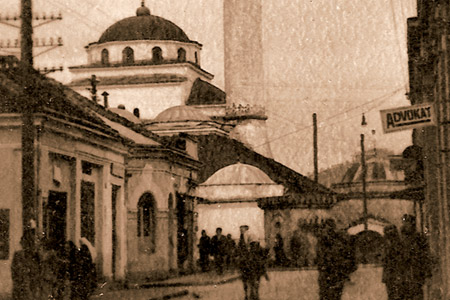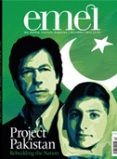
Save Muslim History
Issue 99 December 2012
There is no parallel to seeing sites that relate to Islamic history in person. Sadly, these sacred spaces are now being destroyed around the world.
I have always been enraptured with the verses of the Qur’an that direct Muslims to travel the earth and see what has gone before. In Delhi I saw remnants of the astounding golden age of the Mughals, alongside the opulence and indulgence that led to its demise, a lesson in the holistic contribution of Muslims to culture, as well as the perils of hubris. In Granada’s Alhambra Palace I saw the magnificence of Islamic architecture, and its comfort in creating a European Islam. In Makkah I saw the now significantly hidden mounts of Safa and Marwa mentioned in the Qur’an as the ‘signs’ of God. I imagined the difficulties that beset Lady Hajrah in her isolation in the valley.
Other places, like Petra in Jordan, are part of the backdrop to Islam and believed to be mentioned in the Qur’an. I am constantly thankful at the existence of these sites. I begin to understand the ways the people have lived, and the lessons to be drawn from their civilisations, especially when their fates have been described in the Qur’an.
Of course you can read about these in books. But seeing with your own eyes—as every religious seeker will confirm—has no parallel. After all, did Prophet Ibrahim not express to God that he believed, but that to see with his own eyes would bring peace to his heart?
I’m not the only Muslim to have experienced such epiphanies, or to aspire to travel to such sites of historical importance. Muslim travel and tourism is estimated at $126 billion. Countries that care about their connection to Muslim history are preserving sites, which help their own industries, but more importantly makes a contribution to the ummah’s sense of self.
One of my great distresses in recent years is how rapidly and ruthlessly our communal Muslim history is being destroyed, through neglect or willful destruction, which includes destruction by Muslims themselves. It is implicit in the Qur’anic directive to see what has gone before, and that history must be preserved. I am surprised at how easily this is overlooked. There are of course also reasons of sacred space, and love of those who have been part of the birth of Islam. In addition there is a growing movement to discredit the origins of Islam. If these early sites are destroyed, where will this evidence and research stem from?
Muslims are quick to be enraged at the destruction of Muslim heritage by those who are not Muslim. The OIC was in fact founded in response to an arson attack against Al-Aqsa Mosque in 1969. Yet secretary general Ekmeleddin Ihsanoglu has written that the OIC should “spare no effort to preserve the Islamic historical and religious identity of Al Quds Al Sharif”. Is this shrine worship? Of course not. Do these sites impede pilgrims? Of course not. And yet in Muslim countries, these arguments are used by Muslims to destroy Muslim sacred sites.
Muslim heritage belongs to the Muslim ummah and to no one single nation state. It is being destroyed across the world in front of our eyes by Muslims. Yet we are doing little or nothing to stop it. The exquisite mosques of Mali, the mausoleums in Pakistan and the Islamic heritage sites where our Holy Prophet himself was born and lived are disappearing into history.
The first step is for Muslims to re-ignite a passion to save our history—whether that be the Ferhat Pasha mosque being reconstructed in Bosnia, the libraries of Baghdad sacked in the Iraqi invasion, the Joplin mosque burnt down in Missouri, or the historic mosque in Aleppo destroyed by fighting. Our passion must be a global movement that strives to protect and preserve in the interests of the ummah today, to safeguard our future, as well as re-instate what should be instinctive respect for our sacred spaces. We must save Muslim history wherever it is, and from whoever seeks to destroy it. If we don’t take steps now, there will be nothing left. I give you this simple plea: save Muslim history.
Shelina is the author
of Love in a Headscarf,
and writes a blog at
www.spirit21.co.uk
Bookmark this |
|
Add to DIGG |
|
Add to del.icio.us |
|
Stumble this |
|
Share on Facebook |
|
Share this |
|
Send to a Friend |
|
Link to this |
|
Printer Friendly |
|
Print in plain text |
|


Comments
1 Comment
1
Kasir Judi
21 Feb 17, 03:58
nice share..keep it :)